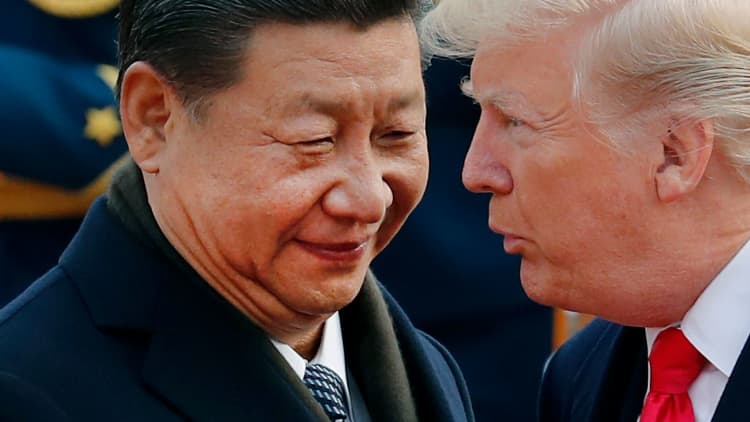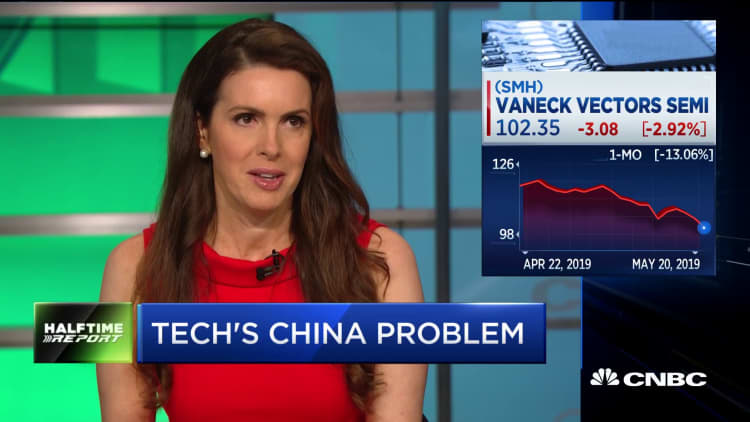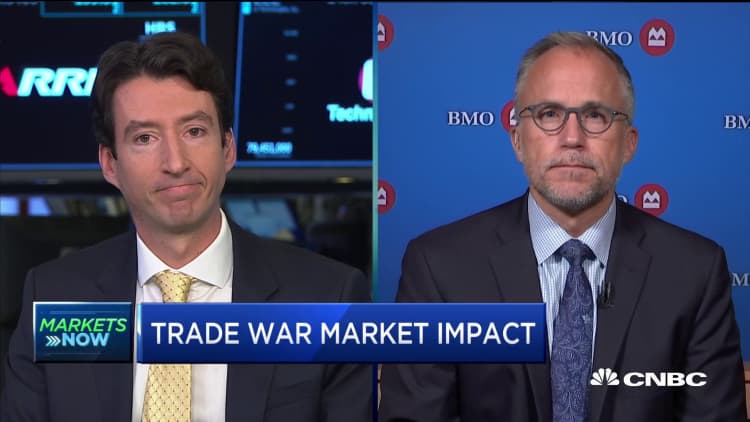
Back in 1997, a group of neoconservatives founded "The Project for a New American Century."
Led by Bill Kristol and other so-called neocons, including former Vice President Dick Cheney, former Defense Secretary Donald Rumsfeld and current National Security Director John Bolton, the group called for a major revamp of American foreign policy initiatives, broadly with respect to the Middle East and, specifically, with regard to Iraq.
The group wrote white papers and sent letters to then-President Bill Clinton urging him and his foreign policy team to support regime change in Iraq. While Clinton may have recognized Saddam Hussein as a serious threat, it would be George W. Bush who would populate his foreign policy team with these group members and ultimately follow their lead into Baghdad.

Regime change in Iraq was something that Bush campaigned on, although no one took him seriously at the time. No one should have been shocked when 9/11 served as a predicate for toppling Saddam in 2003. In some ways, it is reminiscent of the claim that we take President Donald Trump seriously, but not literally. Those who viewed Bush 43's Iraq comments seriously, but not literally, were somewhat taken aback when the U.S. moved on Iraq. They should not have been.
Similarly today, Trump's closest advisors, including Robert Lighthizer and Peter Navarro, have identified China as the foremost threat to the United States in the years and decades ahead. They argue, even more than the president himself, that China represents an existential economic and military threat to the U.S. and often imply that nothing less than crippling China's economy will prevent Beijing from becoming stronger than the U.S. in military terms, threatening U.S. interests in the Pacific and becoming the world's leading economic power in the next 10-15 years.
The president himself, like Bush 43 before him, is putting all his stock in these individuals who have more apocalyptic views of the world than advisors who have since departed the White House. He has also stated plainly that he intends to win the "trade war" with China after the U.S. suffered through decades of unfair Chinese actions on the trade front. While there is good reason to challenge China on a variety of fronts and force them to change behavior that hurt the U.S., and other major trading partners, it is not inevitable that China is as dangerous as members of this administration claim.
Financial WMDs?
China, although it has more than $3 trillion in foreign exchange reserves, is also awash in debt and excess capacity from its housing supply to its manufacturing industries. Its economy is already weakening while its demographic profile is becoming a drag on growth. That, however, is not stopping this group from pressing China as hard as possible operating, as others did with respect to Iraq, on the assumption that China could somehow destroy the U.S. economically and militarily someday in the near future. That may be a dubious claim, as was the one about Iraq having weapons of mass destruction.
Like Bush, Trump appears to truly believe this is a war easily won with few adverse implications for the U.S.
The financial markets are beginning to show signs of disagreement. Stocks, especially those exposed to China, are falling hard. So are interest rates, as U.S. 10-year note yields are at an 18-month low. Economically sensitive commodities like copper and oil are weakening as well, sending a market message that fears of slowing global growth are a direct result of the widening fight with China.

This is not a trade war. The markets have been slow to recognize the high-stakes game that's playing out on the world stage. If this were just about bilateral trade deficits with China, the U.S. could easily sell more agricultural and energy products to China and narrow the gap by hundreds of billions of dollars. Instead, this is, as some surmise, a new Cold War to determine who will be the hegemonic power — economically and militarily — in the years to come.
That's what the president's closest advisors believe, even if Trump is focused solely on trade imbalances.
As was the case in 1997, and eventually when Bush took office in 2001, when important, or powerful, people tell you they are going to do something, it's best to take them seriously and literally. That lesson appears to have been lost on Wall Street and Main Street … not so in Washington.
The question today, as in 2003, is how much of a price will we pay if the economic nationalists turn out to be just as wrong today as the neocons were more than a decade ago?
It seems we will soon find out.


